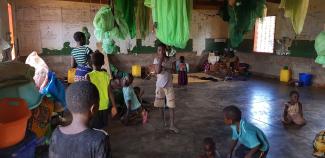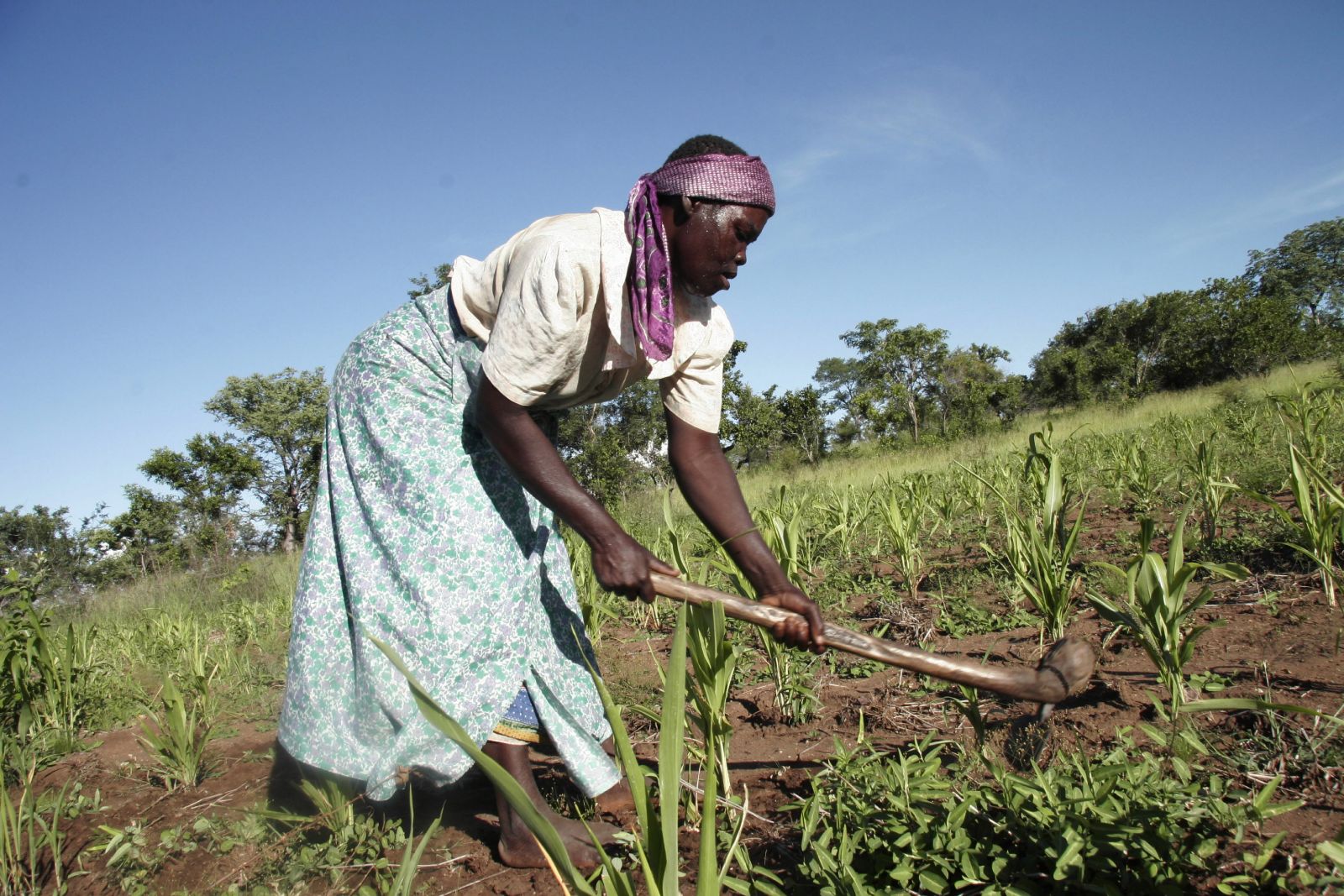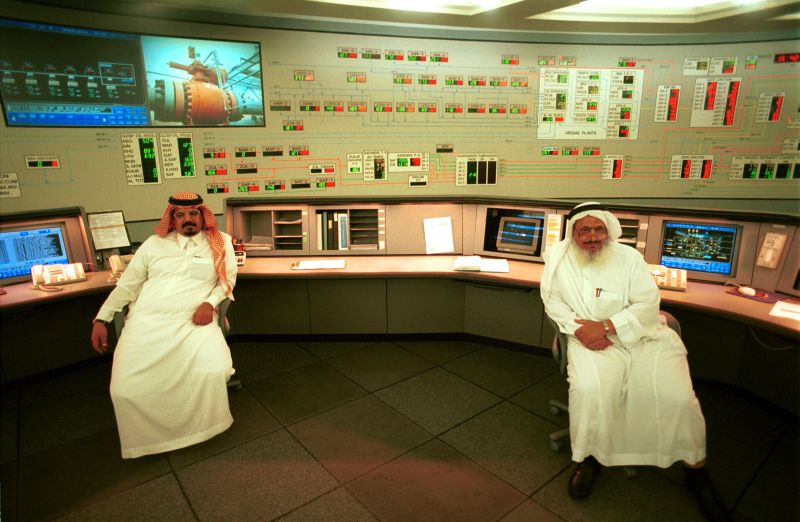Development of democracy
Malawi heads for elections

After independence from Britain in 1964, Kamuzu Banda became president of the new Malawi. For the next 30 years, he ruled a one-party state with dictatorial powers. With a lack of civil rights and liberties, Malawi was described as a country “where silence rules”. In June 1993, a referendum was held, and the nation voted in favour of a multi-party democracy. In the ensuing parliamentary and presidential elections in May 1994, Banda was voted out of office. Bakili Muluzi was elected president.
Ever since, elections have by and large been conducted in a peaceful and lawful manner, with an orderly transfer of power on a president’s departure from office. The peaceful transition from Banda’s dictatorial regime to a democratic constitution was a historic achievement. However, more recently, in the run-up to the elections, there has been evidence of authoritarian tendencies, for example in legislation regulating non-governmental organisations, and politically motivated violence has been increasing.
The president and vice-president are elected directly on the same ticket. They are elected for a five-year term and may stand for reelection once. A simple majority suffices, there is no second ballot. The National Assembly has 193 seats, occupied by members directly elected by constituencies (see box).
The deadline for nominations for the upcoming presidential elections expired in mid-February 2019. Nine candidates are now running for the presidency. But only three are considered serious contenders:
- current President Arthur Peter Mutharika (DPP), who is standing for re-election,
- current Vice-President Saulos Chilima, who quit the ruling party in mid-2018 to launch his own party (UTM), and
- the leader of the biggest opposition party (MCP) Lazarus Chakwera.
The other candidates do not seem to stand a chance of winning the elections. After electoral defeat in 2014 and a period of self-imposed exile, former President Joyce Banda had initially announced to make a renewed bid for the highest office but, without any real prospects of winning, withdrew her application later.
The electoral system seems to be appropriate, but that impression does not withstand closer scrutiny. The president is elected by a simple majority. In the 2014 elections, President Mutharika won 36.4 % of the votes cast. With an estimated voter turnout of just over 60 %, that means that he won with the support from little more than 20 % of the electorate (citizens of at least 18 years of age). That is a weak basis for legitimising a presidency. Mutharika had promised a new 50 %+1 electoral in his manifesto, with a run-off between the two candidates with the most votes, but that reform was dropped and not put to a vote in parliament.
In April last year, representatives of civil society raised a 10-point ultimatum. A fundamental electoral reform with the introduction of a 50 %+1 electoral system was a core demand. They did not succeed. Because the government prioritised the retention of power, the same rules will apply this year as in the past. Judging by the sharp drop in voter registration and verification, turnout in 2019 will likely be even lower than five years ago.
Widespread dissatisfaction
There is no single reason for the fall in electoral participation. The main factor is probably widespread dissatisfaction with the political, economic and social situation. People’s expectations have been dashed. “50 years of standing still”, was the headline the magazine African Business used for its report on the 2014 independence celebrations. Even President Mutharika admitted in his address on the 50th anniversary of independence in 2014 that “on average Malawians are poorer than they were under colonial rule”.
This message was emphatically confirmed in a pastoral letter published by the Catholic bishops in 2018. It called for fundamental policy change. Two months later, one of the country’s two major newspapers published poll results showing that 81 % of Malawians were unhappy with democracy. Twenty-five years after the referendum introducing the multi-party system, they believed it had contributed nothing to the country’s social and economic development.
According to an Afrobarometer survey, 40 % of the people now support the idea of choosing political leaders by methods other than elections. This tallies with the fact that 14 June, the anniversary of the referendum, is no longer a national holiday (“Freedom Day”). Instead, Kamuzu Banda’s birthday on 14 May was revived as a holiday (“Kamuzu Day”).
Observers have accurately assessed the Banda dictatorship’s transition to a multi-party democracy as a “transition without structural transformation”. Oxfam (2018) and the World Bank (2018) both conclude that the country’s small political and economic elite dominate the political processes, including government and other public institutions, and exploit their position of power in a form of “competitive clientelism” (World Bank, 2018). They have transformed the country’s economy into a rent economy solely aimed at maximising short-term profits. No structural transformation focused on long-term development goals has taken place, and there is no sign of it happening.
Weak governance and weak institutions are one – if not the – major cause of Malawi’s low level of development. Improving governance is thus a crucial requirement for a transformative development strategy to achieve sustainable long-term growth. Misappropriation of public funds and systemic corruption related to the rent economy are the most pressing public administration problems (World Bank, 2018). Therefore, it is of particular importance to:
- strengthen public finance management and
- develop efficient checks and balances in order to foster a culture of public accountability.
In 2013, the so-called “Cashgate” scandal made headlines. Between April and September 2013, the equivalent of $ 32 million was misappropriated in various ministries. An investigation was launched by then President Joyce Banda. Auditors scrutinised the accounts for 2009 to 2014 and identified unaccounted-for expenditures totalling $ 1.25 billion. That figure was later reduced to $ 507 million.
Five years on, the political and legal proceedings triggered by the Cashgate scandal have still not been concluded. In September 2018, Reyneck Matemba, the director of the Anti-Corruption Bureau, publicly insisted that the problem of corruption must not be dismissed: “All government ministries, departments and agencies are rotten. There is no single one which we are not having problems with on issues of corruption.”
Malawi gets nuanced marks in the Ibrahim Index of African Governance 2018 (IIAG 2018), which is published by the Mo Ibrahim Foundation. Overall, the country ranks 19th among 54. Its rank is buoyed by good scores for its judicial system and other indicators. However, a sharply deteriorating trend was noted for corruption in the public sector in comparison with the period 2008 to 2017 (with the score sliding to a mere 22 points out of 100).
This assessment is consistent with the Afrobarometer surveys, which show that a majority of the people see a sharp rise in corruption and give the government poor marks for fighting it. In the latest Transparency International Corruption Perception Index, Malawi ranks 120th in the world, scoring just 32 points of a possible 100.
Nonetheless, Malawi is changing, albeit slowly. According to Asbjorn Eidhammer (2017), a former ambassador of Norway, “the most important change is that there is a young generation who wants change.” The young voters have the power for change in their hands, they are in the majority. Under 35s account for 55 % of Malawians registered on the electoral roll. Hopefully they will exercise their right to vote at all levels – in the presidential, parliamentary and local government elections – and will continue to be politically active thereafter.
Rolf Drescher works with the GIZ in Lilongwe as team leader of the technical assistance project “Strengthening Public Financial and Economic Management in Malawi”. The opinions expressed in this article are those of the author and not necessarily those of the GIZ.
rolf.drescher@giz.de
rolf.drescher@t-online.de
Links and literature
World Bank, 2018: Malawi – Systematic country diagnostic: breaking the cycle of low growth and slow poverty reduction.
http://documents.worldbank.org/curated/en/723781545072859945/pdf/malawi-scd-final-board-12-7-2018-12122018-636804216425880639.pdf
Norwegian Institute of International Affairs, 2017: Malawi: a political economy analysis.
https://brage.bibsys.no/xmlui/bitstream/handle/11250/2461122/NUPI_rapport_Malawi_Tostensen.pdf?sequence=1&isAllowed=y
Oxfam, 2018: Closing the divide in Malawi, how to reduce inequality and increase prosperity for all.
https://d1tn3vj7xz9fdh.cloudfront.net/s3fs-public/file_attachments/bp-closing-divide-malawi-inequality-250418-en.pdf
Eidhammer, Asbjorn 2017: Malawi, a place apart. Lilongwe, Malawi: Logos-Open Culture.













